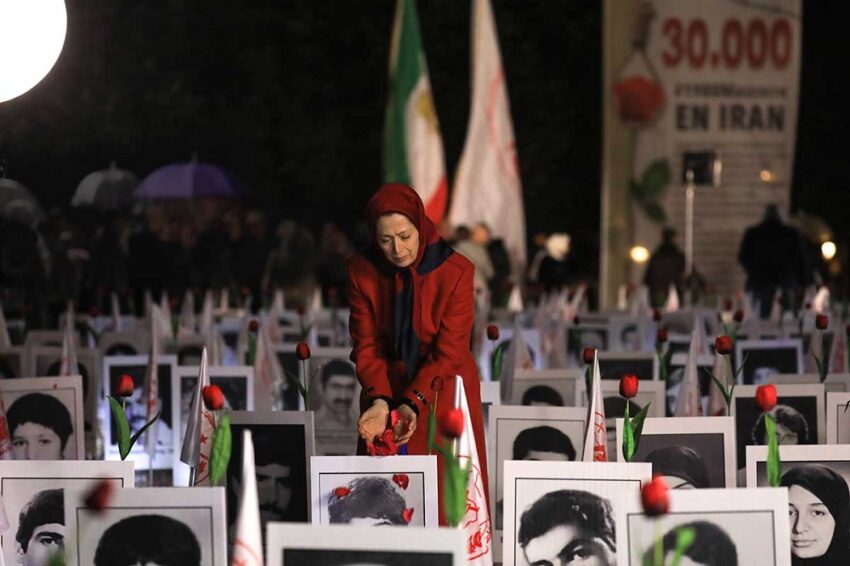Written by NCR-Iran.org Editorial Board, 1st May 2021
As Western governments engage in negotiations with the Iranian regime on the nuclear dossier, it would be instructive to note how Tehran reacts to being given latitude and impunity in the context of appeasement.
One of the most shameful and harmful consequences of the West’s policy of appeasement has been providing impunity to the ruling mullahs when it comes to the 1988 massacre. Now, the situation is getting worse.
Starting in the summer of 1988, in the span of a few months, the clerical regime extrajudicially executed at least 30,000 dissidents, the overwhelming being members and sympathizers of the main Iranian opposition movement, the Mujahedin-e Khalq (POMI/MEK), in various prisons across the country. The bodies were secretly dumped mostly in unmarked mass graves. One of the cemeteries is called Khavaran in the capital Tehran.
Today, the regime is on the verge of implementing plans to destroy the sites of mass graves in Khavaran Cemetery as part of a deliberate pattern to erase its crimes.
In its latest attempt, the regime has forced members of the Baha’i community, a religious minority already suppressed by the regime, to bury their dead in Khavaran, an inhuman measure strongly condemned by that community.
Since the 1988 murders, the regime has tried to remove all evidence of the 1988 killings, prompting human rights organizations like Amnesty International to describe the regime’s actions as “ongoing” crimes against humanity.
A 2017 UN report on the Situation of Human Rights in Iran noted that in March of that year, families of the massacre’s victims visited a site in Mashhad “where up to 170 political prisoners are believed to be buried” and found that “the previously flat area had been covered with soil to create a raised mound over the grave.”
Late last year, a senior group of six UN human rights experts declared that the regime’s past and ongoing violations related to prison massacres in 1988 might amount to crimes against humanity. They called for an international investigation if the violations persist.
As recent evidence shows, those violations continue to persist. However, the international community continues its silence and latitude toward the regime’s disturbing behavior.
International silence breeds human rights violations in Tehran. It is time to hold the Iranian regime to account for its ongoing crimes against humanity.
Mrs. Maryam Rajavi, the President-elect of the National Council of Resistance of Iran (NCRI), condemned the clerical regime’s inhuman demolition of the graves of the martyrs. She urged the United Nations Secretary-General, the UN Security Council, the UN High Commissioner for Human Rights, and the UN Human Rights Council to do the same. She also called on them to take immediate measures to prevent the continued destruction of the graves of the martyrs of the 1988 massacre and prevent pressure and coercion against the Baha’is.
The world must act now. Failure to act will not only encourage Tehran to commit crimes at home; it will also embolden it to expand the scope of its ominous activities and terrorism abroad.
